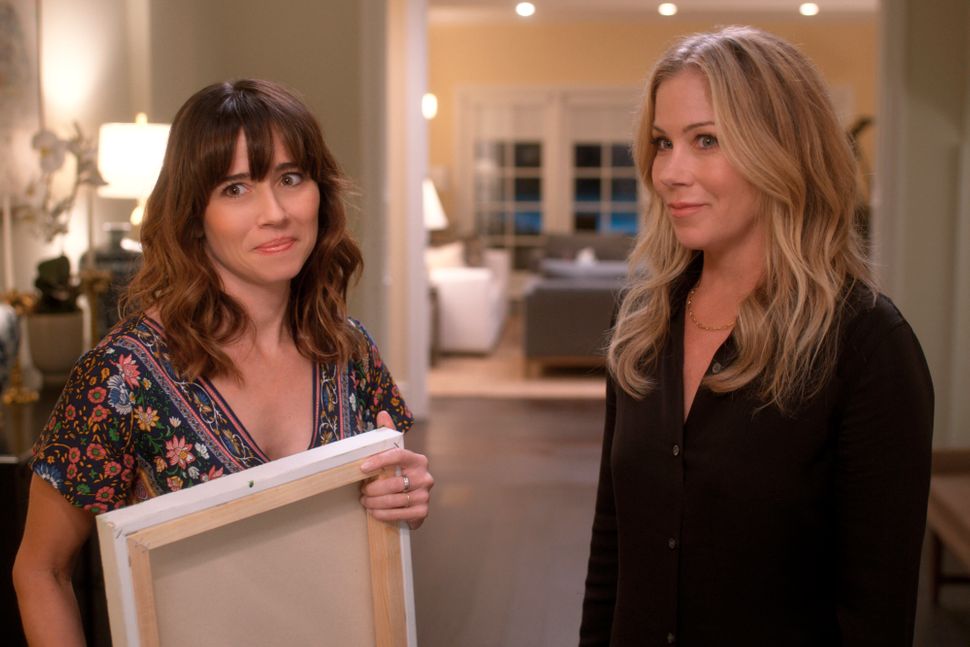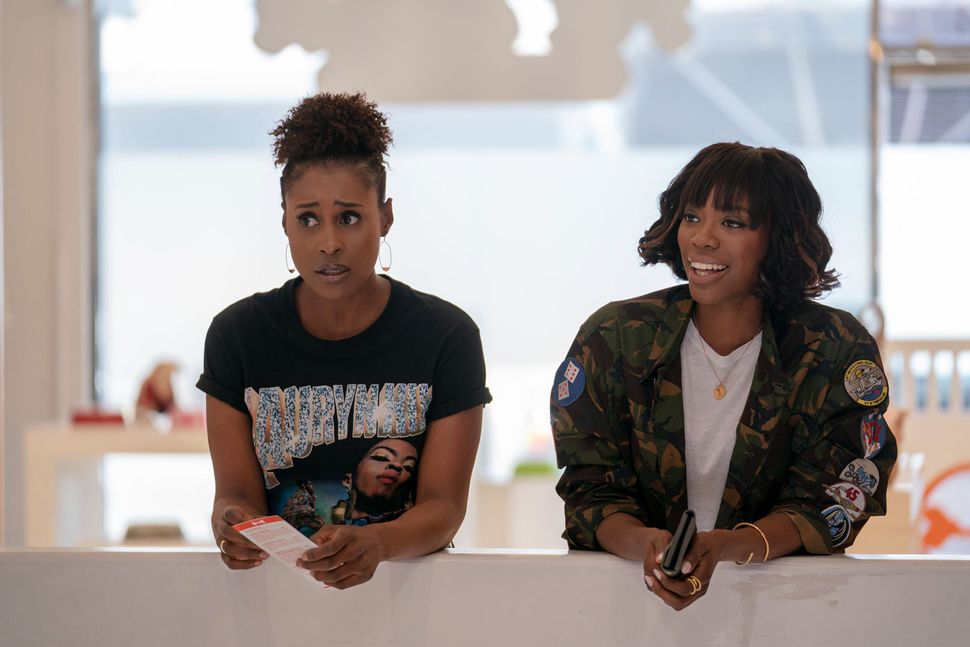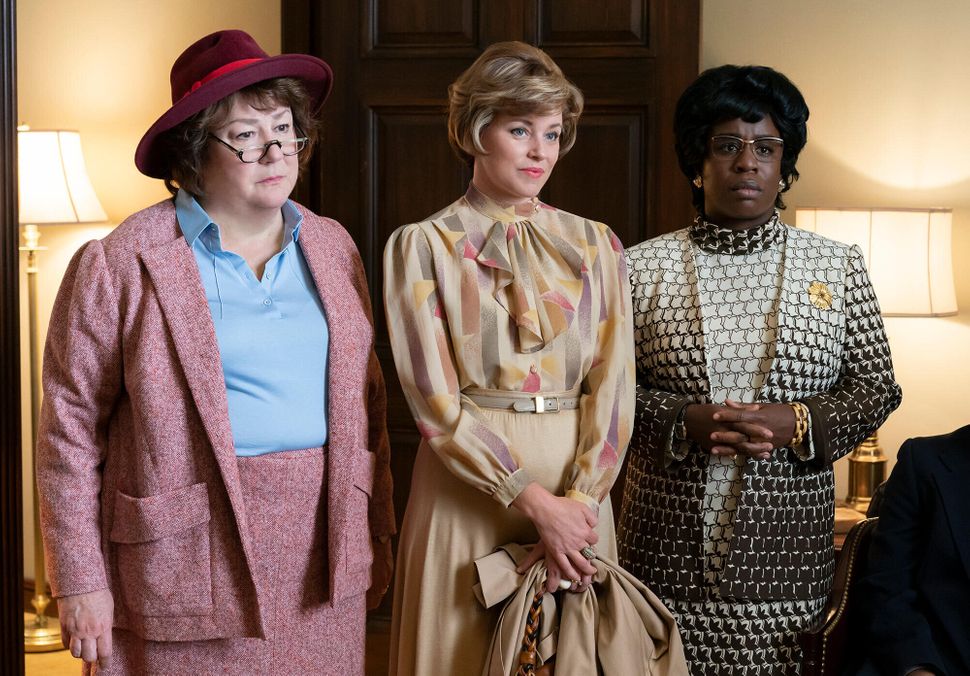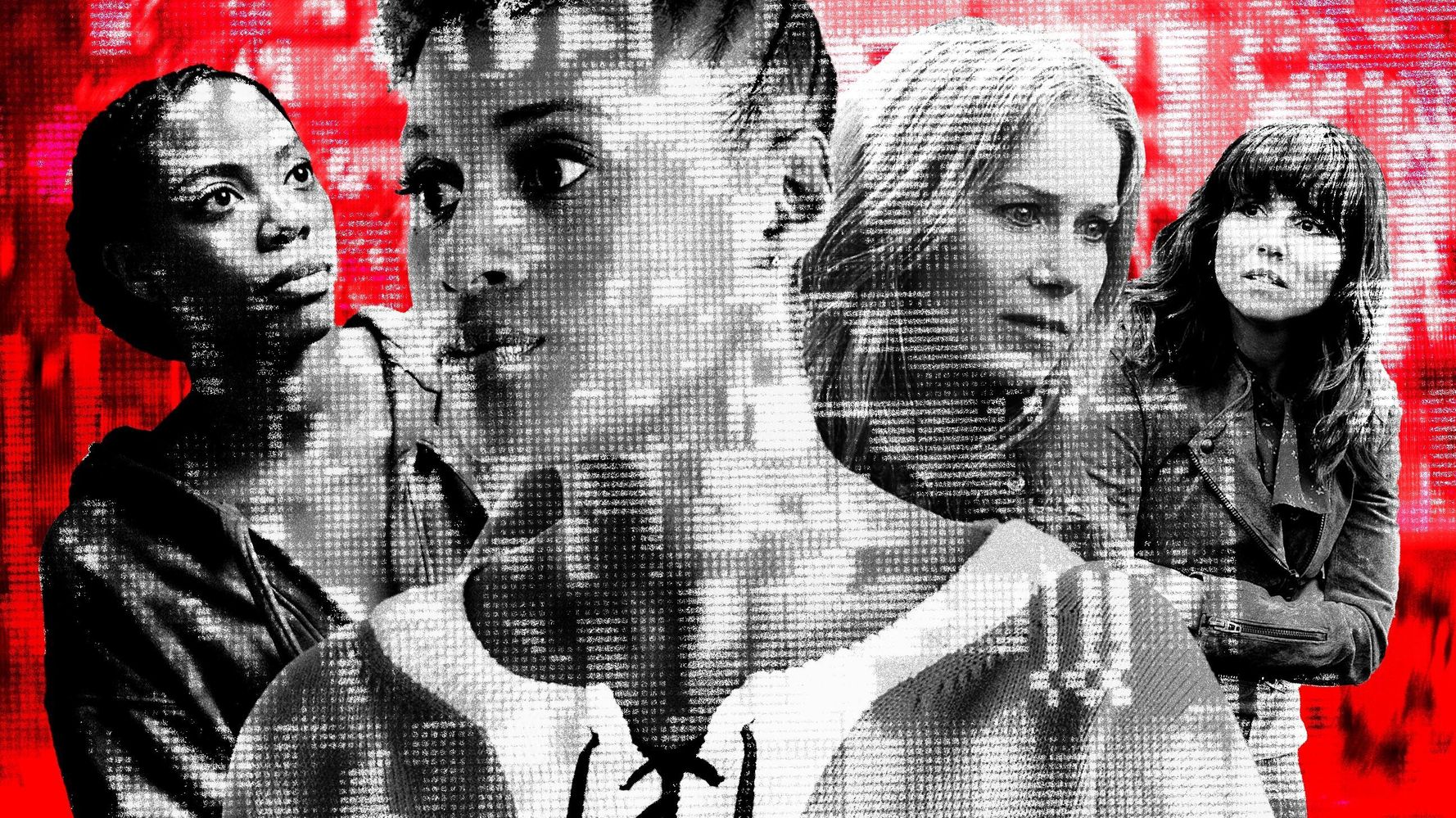[ad_1]
Just when you think Judy (Linda Cardellini) on “Dead to Me” has found a semblance of happiness with a new love interest, best friend Jen (Christina Applegate) accuses her of getting off on abuse in a nasty tirade. It’s the final straw in a long line of Jen’s micro- to macro-aggressions toward Judy.
“Dead to Me,” which premiered its second season Friday on Netflix, is the latest project to showcase deep-rooted toxicity in female friendships on screen. It is, of course, not a new trope but has popped up recently between several women and girls in TV dramas and comedies such as “Insecure,” “Selah and the Spades” and “Mrs. America.”
It’s easy to suggest that these feuds feed into the male gaze that sees women as joyless, uncontrollably hormonal and unable to get along with each other. But that would ignore the tension that naturally develops in female friendships that doesn’t always derive from patriarchal stereotypes.

For instance, Jen has taken advantage of Judy’s unwavering kindness ever since Judy, crippled with guilt, confessed to killing Jen’s husband in a hit-and-run car accident before the two women met and bonded in grief therapy. Instead of cutting ties with Judy, Jen keeps her in her life mostly as her punching bag, culminating with her then killing Judy’s husband. Now in Season 2, they are floundering in their own grief in a codependent friendship built on deceit, death and heartbreak. It’s an emotionally exhausting relationship to watch. But Jen and Judy’s dynamic is probably relatable to many women (killings aside, of course). Judy’s constant need to please even the most contentious people in her life — including Jen — is an affliction specific to women that begins when they’re young.
“Some of that has to do with the narrative we tell girls that they have to be nice and be friends with everybody,” Shara Crookston, assistant professor at the University of Toledo’s department of women’s and gender studies, tells HuffPost. This obligation to appease is carried over into their adult lives, creating friendships that look a lot like Jen and Judy’s that has long shifted from important to unhealthful.
Not only do these types of ideologies begin at childhood, but they’re also passed on by mothers, the person with whom a woman often has her most complicated and significant relationship. Young girls are often so desperate to satisfy their mothers that they put aside their own desires to accommodate their mom’s. Though the mother may be trying to prepare their child to contend with the challenges of living in a world rigged against women, that can lead to bitter rivalries with her friends, as it does in “Selah and the Spades.”
Selah’s (Lovie Simone) mom (Gina Torres) pushes her to be the best at everything, including school and the cheerleading squad, which results in her inability to cope with a quiet new girl in class (Celeste O’Connor) getting more attention. Selah is so consumed with her jealousy that she nearly harms her in the film’s shocking climax.

“Selah and the Spades” is an extreme example of girls pitted against each other, but it highlights some of the negativity that echoes throughout their lives.
“School is a breeding ground for competing goals, and that does not go away as women age,” says Erika Ames, sociologist and licensed clinical social worker. “One is to appear wonderful to society, and another is to be a good friend. Sometimes we care more about what other people think of us and assume that friendships will be there.”
Or there’s an assumption that female friendships will just fix themselves if they run into a snag, like what’s happening between Molly (Yvonne Orji) and Issa (Issa Rae) on “Insecure.” Girls and women have to spend so much time trying to succeed in the larger world that sometimes they don’t even consider putting some of that energy into their equally critical friendships. Molly and Issa are both struggling to fulfill new areas in their lives — a promising new romance and a new job, respectively — that it has taken priority over their relationship. They don’t even seem to want to fix the problem, choosing instead to trade low-key jabs at each other.
It points to how female friendships are too often subconsciously seen as auxiliary; stepping stones until one or both arrive at or are barreling toward a new phase in their lives. “There is a narrative that female friendships are a temporary placeholder until they find a partner,” Crookston says. “I notice that a lot more women talk about their husbands as their best friends, but most men don’t talk about their wives the same way.”

That is where the patriarchal value system does come into play. But it’s not just about Molly’s boyfriend now taking precedence over Issa or about Judy submitting to standards imposed on women or Selah being so worried about her own power that she diffuses another girl’s. It’s about how women are choosing to navigate or even topple the patriarchy to the detriment of their friendships.
It is most evident in “Mrs. America,” where two groups on either side of the political spectrum during the second wave of the feminist movement battle more for individual renown than allyship among women even in their own camp. On one end, Phyllis Schlafly (Cate Blanchett) climbs the political ladder by advocating to protect patriarchal standards, leaving several of her supporters — including domestic abuse victims — feeling even more silenced than they do at home.
On the other end are Gloria Steinem (Rose Byrne) and Shirley Chisholm (Uzo Aduba), who are portrayed as vying to achieve their own influence through a narrow feminist agenda that fails to consider the nuanced struggles of women of color and lesbians.
Because women are constantly contending with conflicting ambitions, they sometimes don’t see — or, maybe in the case of “Mrs. America,” they don’t care — how that can contribute to friction in their female relationships. Though it can come across as merely trying to assimilate to a dog-eat-dog, patriarchal society, it can look a lot like treating their female friends as foes and not allies.

Then again, some women try to show empathy by ascribing their views on their friends without recognizing the unique experiences that dictate their female gazes and how they navigate the world. That’s definitely an impetus for Jen’s outburst, Molly and Issa’s downfall, Selah, and the women of “Mrs. America.”
“We think we’re putting ourselves in someone else’s shoes when the bodies and experiences we put in those shoes are still our own,” Ames said. “We judge our friends in particular because we think we are more informed about what’s going on with them.”
So how can women bounce back from a crucial point of tension in their friendship? If it’s worth saving, Crookston advises that both parties understand that they are contending with things that extend far beyond this relationship. But sometimes it could be a sign that they should part ways, like Black lesbian feminist Margaret Sloan (Bria Henderson) does when she ditches Steinem’s camp in “Mrs. America.”
“There are friendships that are just supposed to last for a short amount of time in our lives,” Crookston said. “And that’s OK.”
Calling all HuffPost superfans!
Sign up for membership to become a founding member and help shape HuffPost’s next chapter
[ad_2]
Source link

